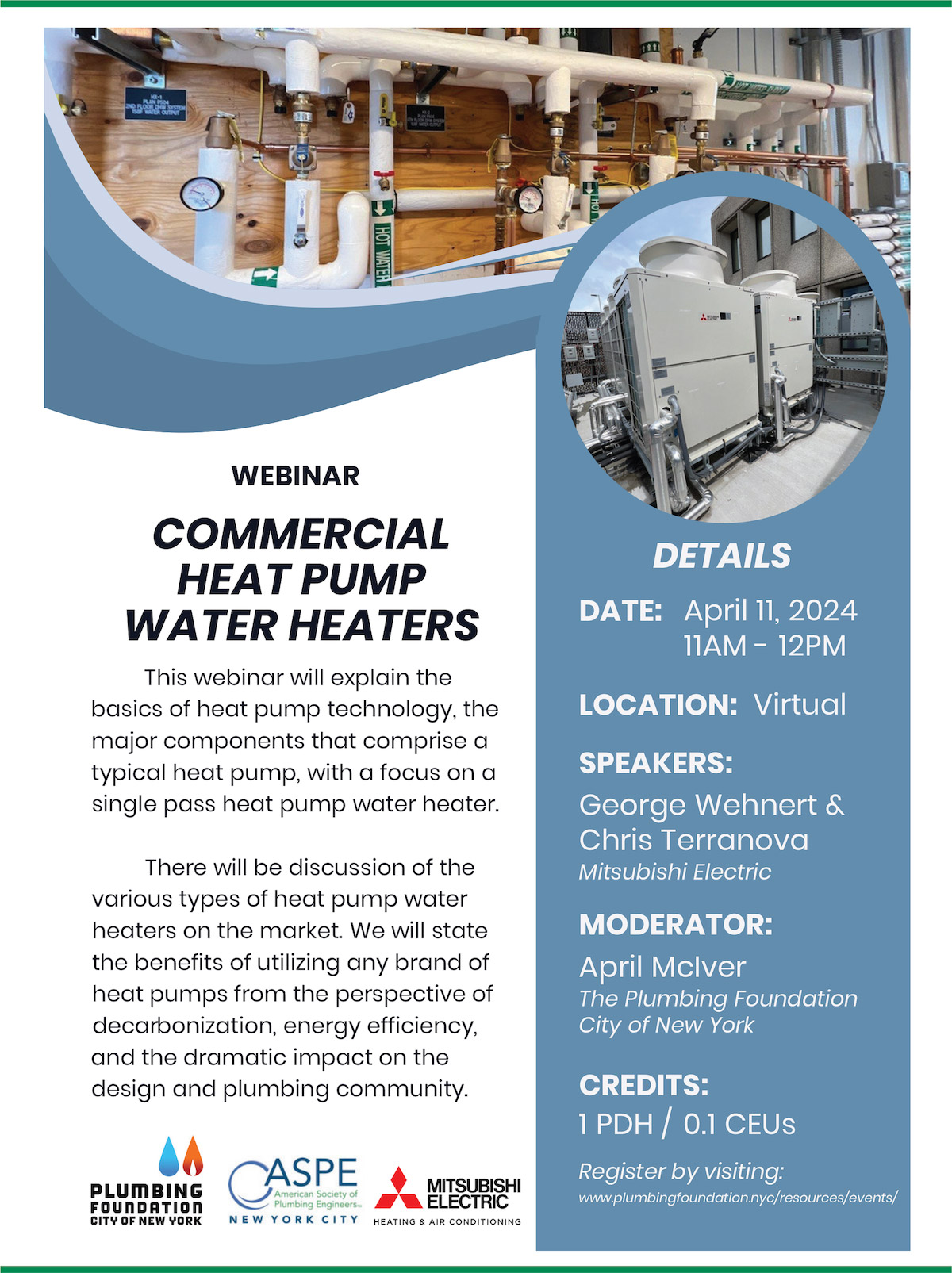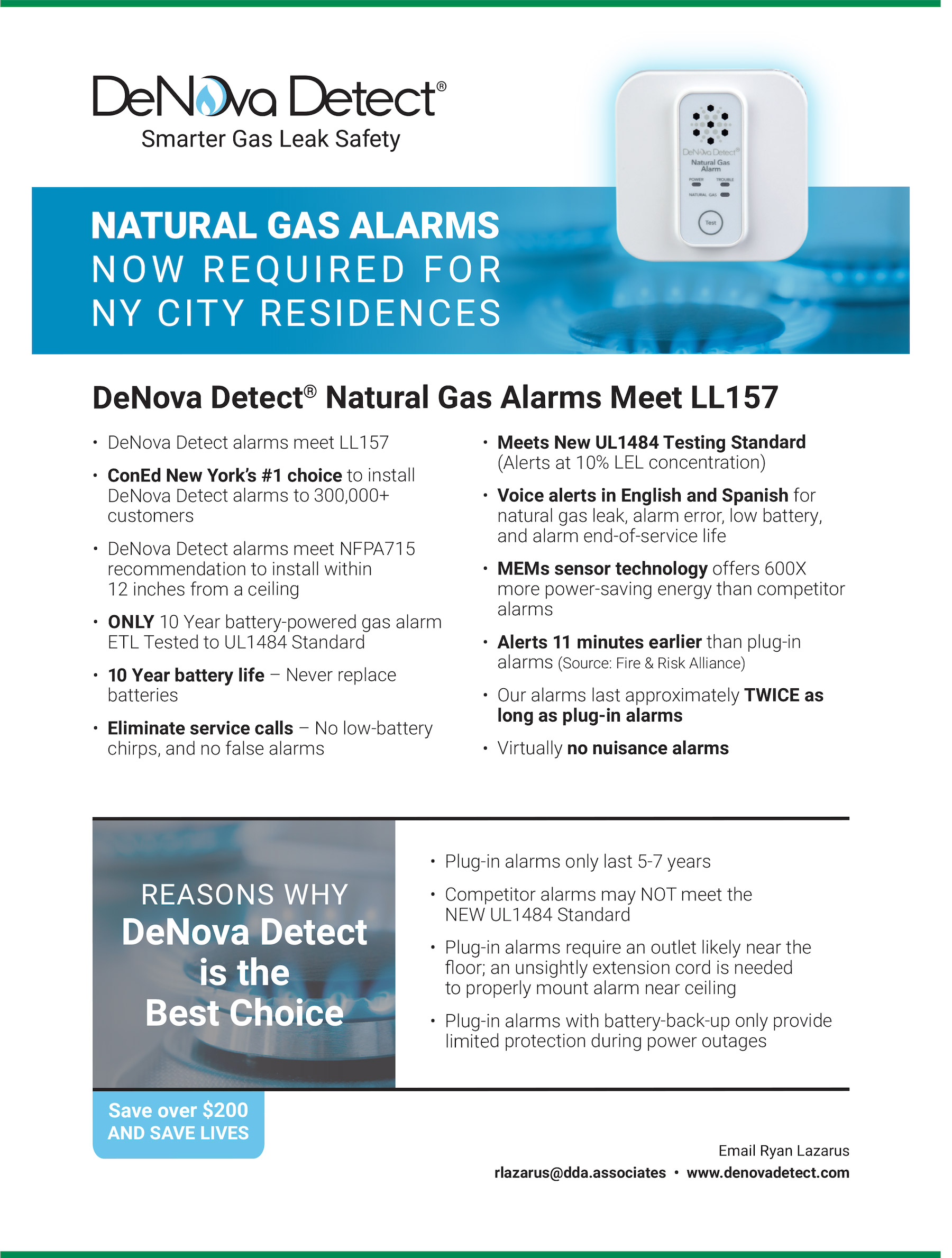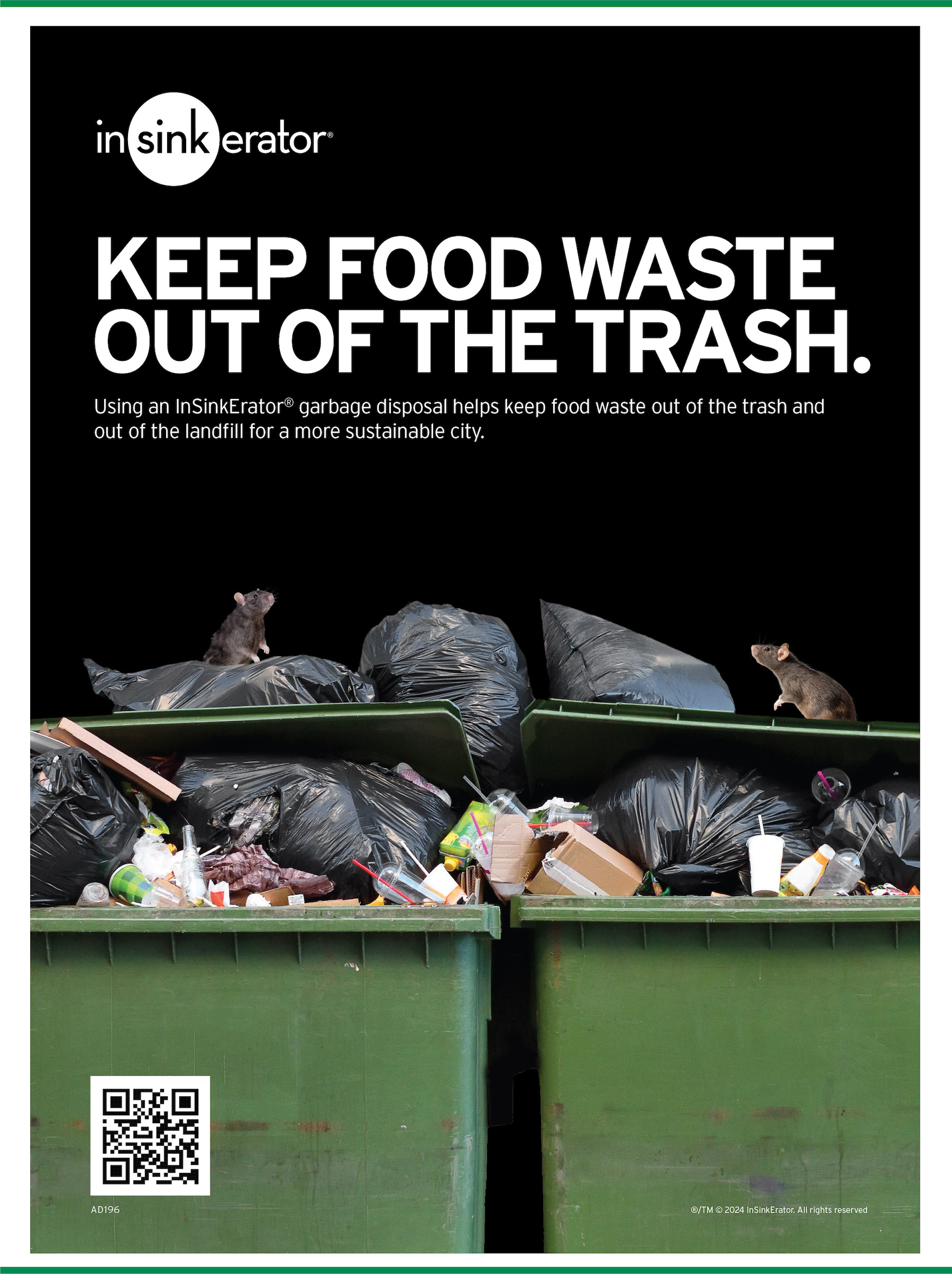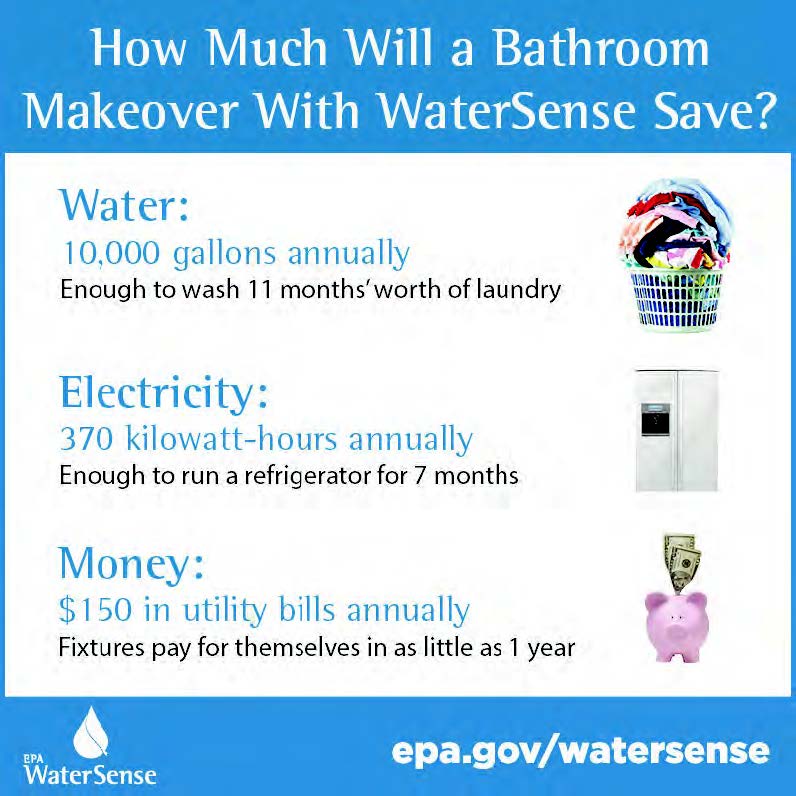Since 1962, the most reliable source of information on NYC’s plumbing industry.
Pipecaster Issue 1: Vol. 47
Click here for a PDF version of this issue of Pipecaster
New York City Department of Buildings Issues Rules for Installation of Natural Gas Alarms in Accordance with Local Law 157
Another Significant Advancement in Gas Safety for New Yorker’s
Natural Gas Alarms – A Consumer Layer-of-Protection
Like fire and carbon monoxide alarms, natural gas alarms provide NYC residents with another safety layer of protection in the event of a gas leak within a home or business.
The primary “safety alarm” for a natural gas leak is a gas odor typically associated with the smell of rotten eggs. This odor is a sulfur compound added such that a person with an average sense of smell will be alerted to a potential natural gas leak. In some cases, an individual’s sense of smell may not enable detection of a natural gas leak. This may be caused by several factors such as age, medical conditions (colds, sinus infections etc.), tobacco use and other factors. In addition, phenomena known as odor fade or masking may occur which may impact an individual’s ability to detect the smell of natural gas if a leak occurs.
As such, natural gas alarms are critical if an occupant is not able to smell natural gas or if small children or elderly occupants are present, which creates a higher risk for a gas stove burner to be left on without a flame. These life saving devices work by sensing natural gas and sounding an alarm before the gas reaches the explosive range to keep you safe.
Following the East Harlem incident that occurred ten years ago this March, New York City issued a series of Local Laws aimed at providing additional layers of protection for buildings with gas service, including enhanced public awareness programs for building owners, mandated interior gas piping safety inspections by Licensed Master Plumbers (LMP’s), significant enhancements to training and qualification requirements LMP’s performing work on gas piping systems, and a requirement for installation of natural gas alarms in residential buildings. Local Law 157 of 2016 amended the New York City Housing Maintenance Code and the New York City Building Code to require the installation of natural gas detecting devices in residential buildings. It also required the NYC Department of Buildings (DOB) to promulgate a rule regarding the installation and location of natural gas alarms after industry standards are developed to address installation requirements. In parallel, Northeast Gas Association (NGA) and Con Edison actively participated in the development of the National Fire Protection Association (“NFPA”) Standard 715, which addresses device and location placement requirements. NFPA Standard 715 went into effect April 9, 2022, and coupled with the DOB Rule Section 908-02, clarifies the installation and location requirements of the standard applicable to Local Law 157. These DOB installation requirements amend some provisions of NFPA 715 based on comments received in a public hearing, which NGA participated in on behalf of membership.
In response to comments provided by the Plumbing Foundation, NGA, and others, language was added to address placement of alarms that does not allow for installation of an alarm at least 3 feet from a natural gas fueled appliance. Also, the list of people who can install alarms powered by batteries or by plugging in was expanded to allow someone other than a building owner, maintenance personnel or tenant, such as LMP’s, to install those kinds of alarms. Since LMP’s are already conducting mandated interior gas piping inspections under LL 152, LMP’s may be in a great position to assist building owners in compliance with LL 157. The Foundation is working with the Northeast Gas Association and the Utilities to explore synergy opportunities to offer gas alarm installation support to building owners where appropriate.
In addition, the effective date of January 1, 2024 was deleted because it is no longer necessary to trigger the requirement to install these alarms by May of 2025. The DOB’s authority for these rules is found in sections 643 and 1043 of the New York City Charter. A copy of the DOB Rules for Installation of Natural Gas Alarms can be found here: https://rules.cityofnewyork.us/wp-content/uploads/2024/02/Final-Rule-Rules-Relating-to-Installation-and-Location-of-Natural-Gas-Alarms.pdf.
Natural Gas Alarm FAQ’s for LMP’s
The basic function of the Natural Gas Alarm is to alert the occupants that a potentially hazardous condition may exist within the building, and that appropriate action should ensue. However, it is not possible to pre-determine where natural gas leakage may occur. To that end, there is an underlying assumption in the NFPA 715 Standard about the location and source of natural gas leaks within any building. The requirements for installing an RMD are based on two very specific physical features of any building: the location of permanently installed gas appliances and the location of the point of entry of the natural gas service. Highlighted below are some FAQ’s LMP’s should be aware of:
- Natural Gas alarms are not the same as carbon monoxide detectors or smoke detectors.
- Alert when gas leaks from an appliance or gas carrying pipe.
- Alert when a stove burner is on without a flame.
- Must be installed in accordance with the manufacturer’s instructions and DOB Rules.
- Must be installed as close as practicable to the ceiling (2) and at least within 12” of the ceiling in the same room with natural gas appliances such as stoves or water heaters.
- Should come with a lifetime battery if battery operated.
Be sure to read the manufacturer’s user manual for proper installation, care, and use.
If a natural gas alarm is activated, evacuate the building immediately. If you smell gas and your alarm does not activate, also evacuate immediately and refrain from turning any lights on or off and from using your phone or appliances on your way out. Then, call 911 and from a safe location, and do not return to your home until an emergency responder advises it is safe to do so.
NOTE:
Natural Gas Alarms MUST meet current requirements in NFPA 715 Standard for the Installation of Fuel Gas Warning Equipment 2023 AND MUST also meet requirements and be listed to UL 1484 Standard for Safety Residential Gas Detectors (February 23, 2022).
Why is this Important?
Conformance with these standards ensures that the devices will perform as intended. Devices conforming with the current version of Underwriters Laboratory Standard UL 1484 ensures safety sensitivity with a detection threshold of 10% LEL (Lower Explosive Limit), minimizes the risk of false alarms and device testing that ensures the detector cannot be a source of ignition in a maximum flammability natural gas environment.
Important: NYC DOB “Get Summonses Corrected” Campaign
The NYC Department of Buildings (DOB) issued a notice in March regarding its efforts to resolve open summonses through the Get Summonses Corrected (GSC) campaign. Beginning March 19, DOB’s Administrative Enforcement Unit (AEU) will host virtual and borough office events to assist individuals experiencing difficulties with certifying correction. Please visit the Service Update here: https://www.nyc.gov/assets/buildings/pdf/gsc_aeu-sn.pdf
ICYMI: Manhattan DA, DOI and DOB Commissioners Announce Indictment for Sham Safety School
On February 28, a joint press release by Manhattan District Attorney Alvin Bragg, NYC Department of Investigations (DOI) Commissioner Jocelyn Strauber, and NYC Department of Buildings (DOB} Commissioner Jimmy Oddo announced the indictment of Valor Security & investigation and several individuals, including licensed master plumbers and NYCHA employees, for a sham safety training program. Specifically, the indictment alleges that between December 2019 and April 2023, Valor issued safety certificates and cards to approximately 20,000 students for a fee without requiring those students to actually take the required 40-hour safety training. The NYC licensed master plumbers and NYCHA employees involved acted as brokers, connecting students to Valor to obtain the fraudulent cards.
In 2022, Ivan Frias died from falling from the 15th floor of a construction site and it was found that Valor fraudulently “certified” that Mr. Frias completed safety training. Valor, its employees, and one broker are being charged with Reckless Endangerment in the Second Degree.
The two licensed master plumbers were from Flow Right Plumbing & Heating Corp. and KCM Plumbing & Heating Co., as well as four employees of DeMar Plumbing Corp.
The Plumbing Foundation commends the DA and Commissioners for their hard work in combating the fraudulent and dangerous behavior by the company and individuals involved in this scheme.
Link to full press release:
https://manhattanda.org/d-a-bragg-d-o-i-commissioner-strauber-d-o-b-commissioner-oddo-announce-indictment-of-valor-security-for-operating-sham-safety-training-school-with-approx-20k-students/
REMINDER: Code Requirements for Company Vehicles
The Plumbing Foundation regularly receives tips regarding unlicensed plumbing work and advertisements, which often includes photographs of company vehicles that have listed “plumbing” in their company name or description but have no license information listed on the vehicle. Sometimes these vehicles are actually legitimate licensed plumbing company vehicles and we try to provide courtesy reminders to the licensee of the NYC Administrative Code:
28-408.6.2 of the New York City Administrative Code
All business vehicles, advertising, websites and stationery used in connection with a master plumber business shall display prominently the full name of the licensee, the words “N.Y.C. licensed plumber,” the licensee’s number and the licensee’s business address. If the business is conducted under a trade name, or by a partnership or corporation, the trade name, partnership or corporate name shall be placed immediately above the full name or names of the licensed master plumber or licensed master plumbers. Prior to using, the trade name, partnership or corporate name must have been disclosed to the department in a form and manner required by the department.
However, some licensees fail to comply with the Code, and recent disciplinary actions show the NYC Department of Buildings (DOB) does take this Code requirement seriously. In February 2024, DOB issued a violation to a Licensed Master Plumber for, inter alia, not complying with the above requirements. The LMP received a fine and probation.
The Plumbing Foundation urges you to review your fleet of vehicles as well as your business location to ensure you are in compliance with the Administrative Code.
NYC DEP Adopts Rules on Cookstove Emissions Control Devices
The NYC Department of Environmental Protection (DEP) adopted rules, effective April 27, 2024, that establish requirements for control devices to reduce emissions from cookstoves at restaurants in existence prior to May 6, 2016. These rules are implementing Local Law 38 of 2015, which requires cookstoves at restaurants to have an emission-control device for odors, smoke, and particulates. The justification is to reduce asthma and respiratory-related conditions. The rules define cookstoves as any wood fired or anthracite coal fired appliance for the preparation of food intended for onsite consumption or retail purpose—this is the “pizza place” law that circulated many news outlets in recent years.
According to the DEP rules, a committee was established to create recommendations for the rules which involved representatives of the restaurant industry as well as DEP and environmental justice representatives.
The rule requires restaurants with cookstoves installed prior to May 6, 2016 to hire a professional engineer or registered architect to assess the feasibility of installing an emissions control device to achieve 75% reduction in particulate emissions, and if not feasible, then an emissions control system for reducing at least 25%. However, it allows restaurants to use approved devices (either approved by DEP or FDNY) without having the assessment done first.
Read the full text of the rules here:
rules.cityofnewyork.us/wp-content/uploads/2023/06/DEP-Cook-Stove-Rule-Final.pdf
NYS Executive Budget Update
The Plumbing Foundation is closely monitoring and discussing issues with stakeholders and legislators on the Affordable Gas Transition Act (AGTA) proposed in Governor Hochul’s budget, which seeks to eliminate the 100-foot rule that requires utility companies in New York State to subsidize gas hookups for new customers. The AGTA, which is very similar to the NY Home Energy Affordable Transition (HEAT) Act (S.2016A/A.4592), also allows the NYS Public Service Commission (PSC) to decommission natural gas systems, which would interfere with ongoing proceedings before the PSC that allows utility providers to issue studies on the natural gas transition.
In February, the NYS Senate and Assembly held joint budget hearings and while on the panel for Environmental Conservation, Senator Mario Mattera specifically mentioned to the PSC Chair Rory Christian that there needs to be a “plan not a ban” when it comes to natural gas. Senator Mattera said that the state needs to consider other sources of renewable energy and consider jobs for people losing theirs, especially in the plumbing industry. Interestingly enough, prior to that, the PSC Chair could not provide an exact timeline on the ongoing natural gas transition proceedings and said he thinks he saw something on his calendar for Q3. The budget hearings made it clear that there is still no transparent path that seriously takes into consideration the enormous costs involved and loss of jobs in order to meet the Climate Leadership and Community Protection Act (CLCPA) carbon emission reduction goals.
Following, on March 11th and 12th, the Senate and Assembly released their one-house bills. The Senate replaced the AGTA with their NY HEAT Act legislation and the Assembly omitted the AGTA altogether.
The budget is due April 1, but there are some saying it will likely be late this year. We will continue to monitor and provide an update in our new monthly e-blast Flow & Order.
THE PLUMBING FOUNDATION’S ENVIRONMENTAL STATEMENT
Since its establishment in 1986, the Plumbing Foundation has worked diligently to ensure the plumbing industry has as little a “carbon footprint” on New York City as possible. The plumbing industry has historically utilized environmentally friendly materials such as recycled cast-iron and copper piping/fittings. The Foundation will continue in its role of protecting New York City as well as being an advocate for the environment by strengthening its water/sanitary regulations and thereby reducing wasteful water consumption in the City.
EPA WaterSense®
Webinar: Commercial Heat Pump Water Heaters

DETAILS
DATE: April 11, 2024, 11AM – 12PM
LOCATION: Virtual
SPEAKERS: George Wehnert & Chris Terranova, Mitsubishi Electric
MODERATOR: April Mclver, The Plumbing Foundation, City of New York
CREDITS: 1PDH / 0.1 CEUs
Register by visiting:
www.plumbingfoundation.nyc/resources/events/
THE PIPECASTER is published by the Plumbing Foundation City of New York, Inc.
Lawrence J. Levine, Chairman; Louis J. Buttermark, Vice Chairman; Barr Rickman, Treasurer; April McIver, Executive Director; Terence O’Brien, Editor. Board of Directors: Anthony D. Altimari, Paul Belli, Marc Breslaw, Louis J. Buttermark, Harris Clark, Alex Greenberg, Nicholas Katragis, Angelo Lemodetis, Lawrence J. Levine, Scott Lyons, Barr Rickman, Richard Turchiano




